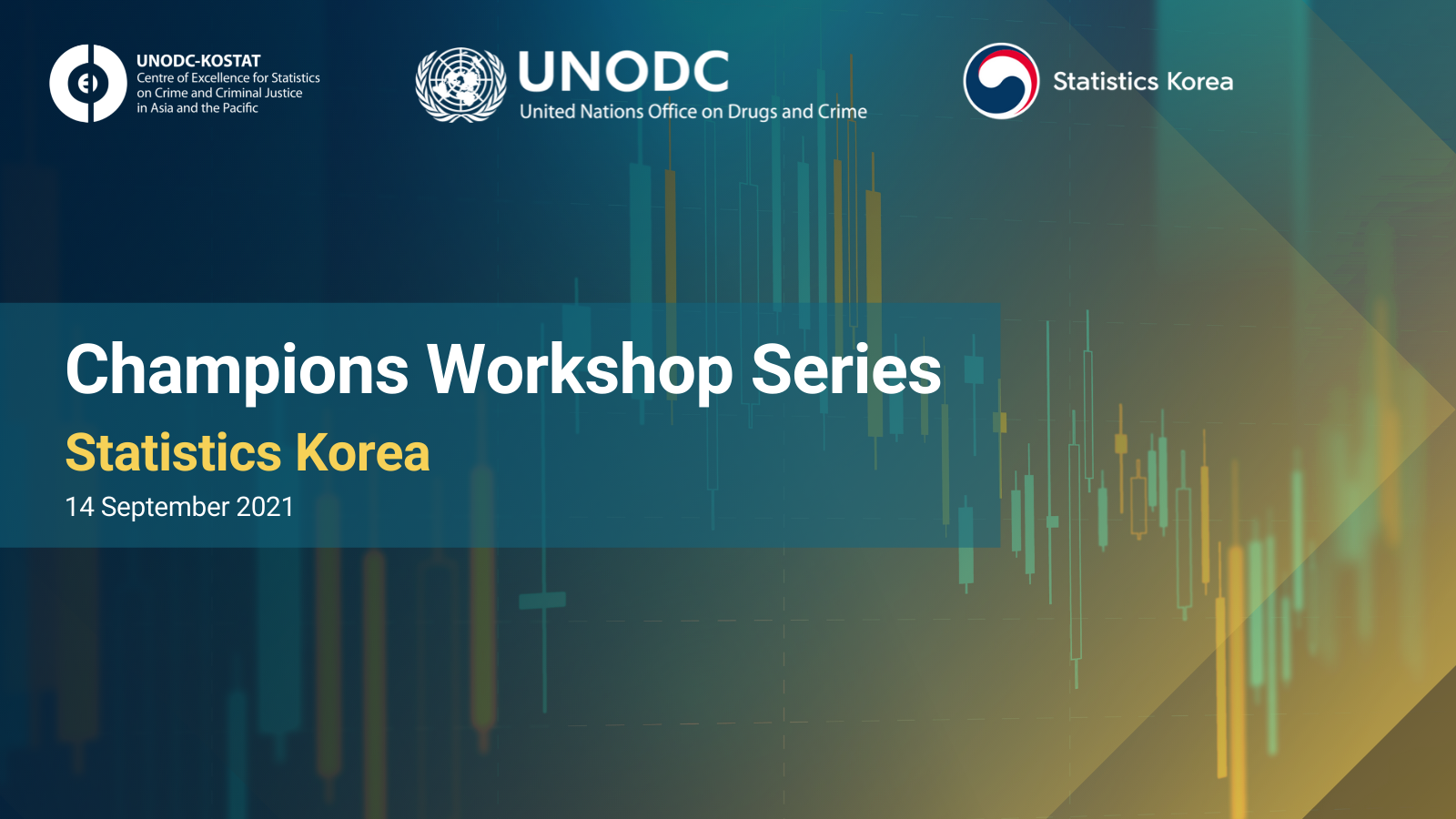
Daejeon (Republic of Korea) 26 July 2021 – In accordance with its mandates, the UNODC-KOSTAT Centre of Excellence (CoE) has been actively engaging with Member States in the Asia-Pacific region to increase their capacity to produce, collect and analyse crime and criminal justice statistics. Accordingly, a primary objective has been to increase data availability to United Nations Surveys on Crime Trends and the Operations of Criminal Justice Systems (UN-CTS) to help national technical experts, policymakers and relevant stakeholders to identify crime trends and develop evidence-based policies.
The UN-CTS is an annual questionnaire sent to Member States through a Note Verbale to collect data on selected crimes and criminal justice system operations across eight sections, which aligns to the standardised definitions of the International Classification of Crime for Statistical Purposes (ICCS) and collects data for eight Sustainable Development Goals.
Member States are encouraged to appoint National Focal Points to coordinate with other relevant national institutions for data collection. For the 2020 UN-CTS, only 10 of 56 Member States in Asia and the Pacific provided submissions.
The CoE and Statistics Korea (KOSTAT) have been holding workshops to improve understanding of UN-CTS national challenges and developing effective responses as a burgeoning regional Champion in crime statistics.
The Workshop Series is being attended by staff of the KOSTAT Statistical Standards Division, and UN-CTS Focal Points, Director Young-jae Woo, Deputy Director Jonghee Choi Deputy Director Hye Sook Min and Assistant Director Jooyeon Kim and, from the Statistics Research Institute, Deputy Director Youngshil Park.
The discussions revolved around specific crime-data challenges in Republic of Korea impacting UN-CTS data collection, including limited standardisation of crime definitions in accordance with the ICCS, limited understanding of the purposes and significance of the UN-CTS, difficulty meeting the UN-CTS deadlines due to the incompleteness of the data and limited prioritisation of different national data collecting institutions.
To identify areas of improvement in UN-CTS data files for Republic of Korea, the Focal Points reviewed missing data points and identified specific sections where data may be available. The CoE presented suggestions per section to improve data quality such as increasing the use of additional comments and clarifying the context about the sample size in Meta-data.
The Workshops have increased Focal Point understanding of the UN-CTS enabling the identification of next steps, which includes facilitating communication and building partnerships between relevant institution Focal Points. Based on the insights provided by KOSTAT, the CoE will tailor its strategies to assist Member States to produce and collect high quality crime and criminal justice statistics.
Further information on the UNODC-KOSTAT CoE can be found at here, Twitter @CoE_UNODC and Facebook @UNODC.KOSTAT.CoE.